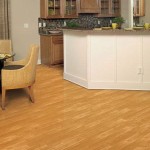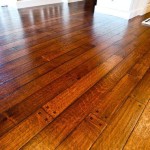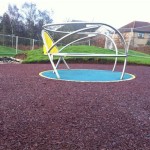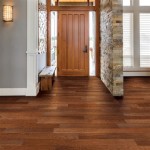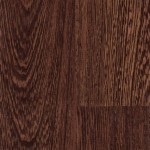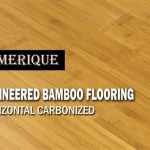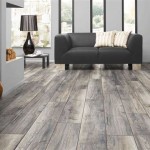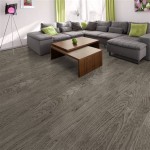Prefinished Engineered Hardwood Flooring: An Essential Guide
Prefinished engineered hardwood flooring has become a popular choice for homeowners seeking the beauty and durability of hardwood without the hassle of finishing. However, choosing the right flooring can be a daunting task. This article will help you navigate the world of prefinished engineered hardwood, providing essential aspects to consider for making an informed decision.
Construction and Composition
Engineered hardwood flooring is constructed with a multi-layer design. The core consists of high-density fiberboard (HDF) or plywood, providing stability and resistance to moisture. A thin layer of real hardwood, known as the veneer, is bonded to the core. This veneer is responsible for the appearance and grain pattern of the flooring.
Finishing and Appearance
Prefinished engineered hardwood flooring comes with a factory-applied finish, saving you the time and expense of finishing it yourself. Finishes vary in terms of durability, sheen level, and color. Common options include urethane, aluminum oxide, and ceramic oxide finishes, which offer excellent scratch and wear resistance.
Durability and Maintenance
Durability is a crucial factor to consider. Prefinished engineered hardwood flooring is generally more resistant to dents, scratches, and everyday wear and tear than traditional solid hardwood flooring. However, the durability of the surface finish also plays a significant role. Look for flooring with a Janka hardness rating that meets the demands of your lifestyle and traffic patterns.
Installation and Acclimation
Installation methods vary depending on the type of flooring. Prefinished engineered hardwood flooring can be installed using a nail-down, glue-down, or floating method. Proper acclimation of the flooring is essential before installation to ensure it adjusts to the specific humidity and temperature conditions of your home.
Cost and Value
The cost of prefinished engineered hardwood flooring depends on the type of wood, finish, and thickness of the veneer. It is generally more affordable than solid hardwood flooring, making it a budget-friendly option. However, the durability and longevity of engineered hardwood flooring provide excellent value for your investment.
Warranty and Protection
Look for flooring with a comprehensive warranty that covers manufacturing defects, wear, and fading. Reputable manufacturers offer warranties that range from 15 years to a lifetime. Proper maintenance and care can extend the lifespan of your flooring, ensuring its beauty and performance for years to come.
Conclusion
Choosing the right prefinished engineered hardwood flooring involves considering factors such as construction, finish, durability, installation, and cost. By understanding these essential aspects, you can make an informed decision that meets your needs and creates a beautiful and long-lasting floor in your home.

The 15 Best Engineered Wood Flooring Brands Reviews 2024 Floorings

Hardwood Vs Engineered Wood Flooring Which Is Best For You Forbes Home

Best Engineered Wood Flooring Options Forbes Home

Pre Finished Vs Site Hardwood Floors

The 15 Best Engineered Wood Flooring Brands Reviews 2024 Floorings

The 15 Best Engineered Wood Flooring Brands Reviews 2024 Floorings

Difference Between Unfinished Engineered Hardwood Floors

Engineered Hardwood Flooring Reviews Best One To Buy

The 15 Best Engineered Wood Flooring Brands Reviews 2024 Floorings

The 15 Best Engineered Wood Flooring Brands Reviews 2024 Floorings

